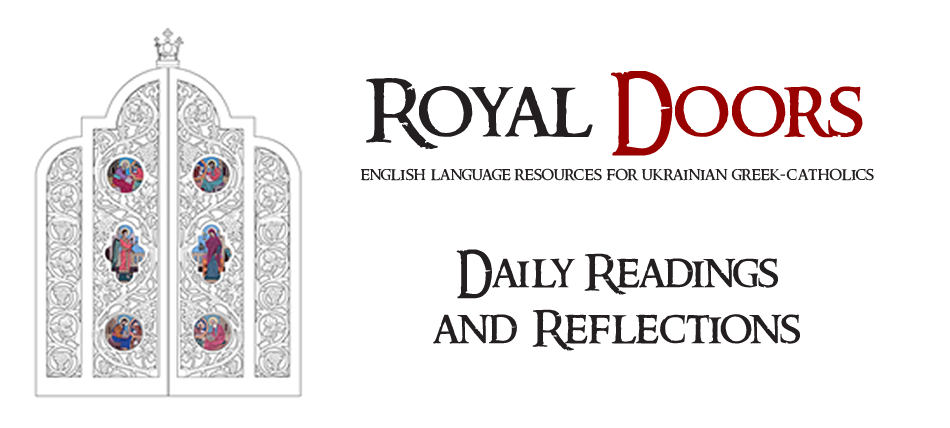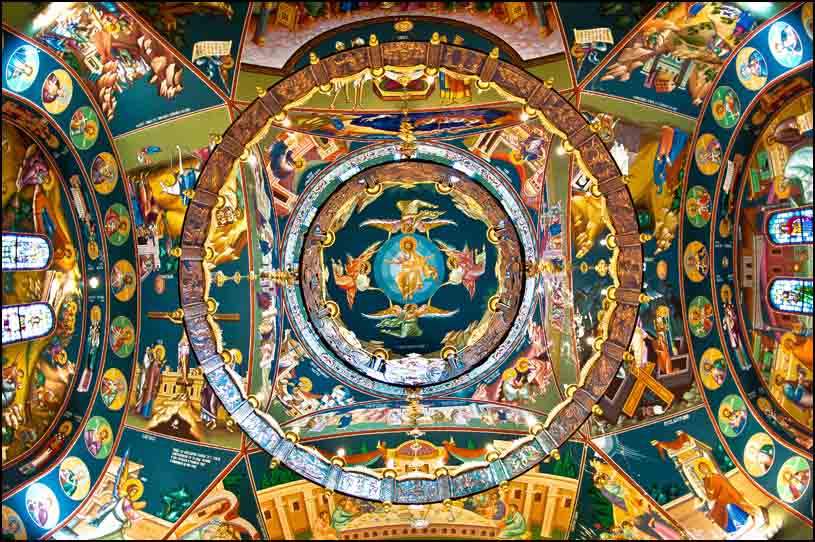THE EPISTLE TO THE EPHESIANS is one of the most beautiful in the New Testament. It was probably written at the end of St. Paul’s life or compiled from his writings shortly after his death. Although it is addressed (in most manuscripts) to the Church in Ephesus, it does not deal with any local problems like some other Pauline epistles. Rather it speaks of the Church is a more general or universal sense, stressing its mission to make the Gospel known throughout the world. This has led some scholars to suggest that it was a kind of circular letter sent to first-century Churches as a summary of St Paul’s teaching.
The epistle begins with a prayer of praise and thanksgiving: “Blessed be the God and Father of our Lord Jesus Christ, who has blessed us in Christ with every spiritual blessing in the heavenly places… He destined us in love to be His sons through Jesus Christ, according to the purpose of His will, to the praise of His glorious grace which He freely bestowed on us in the Beloved… He has made known to us in all wisdom and insight the mystery of His will, according to His purpose which He set forth in Christ as a plan for the fullness of time, to unite all things in Him, things in heaven and things on earth” (Ephesians 1:3-10).
This theological hymn celebrates the mystery of God’s will, described later in the epistle as “the mystery hidden for ages in God” (Ephesians 3:8-9). It describes this mystery as the Father’s plan to unite all things in Him [Christ], things in heaven and things on earth.” In this way the vision of Paradise set forth in the beginning of creation would at last be fulfilled.
The Heavenly Places
Several times in this epistle (e.g. 1:3, 1:20, 2:6) St Paul uses the Greek term en tois epouraniis, literally “the heavenlies” and translated here as “the heavenly places.” Other English translations, such as “the heavenly sphere” or “the heavenly realm,” suggest that St Paul is not talking about geography here — a place up above — but about the condition of eternal life in communion with God.
This life is first of all the communion of Father with the Son and the Holy Spirit. It is in the Trinity that the mystery hidden from the ages finds its home. It is God’s plan to extend to us, who are created in the divine image, a share in this communion. Not even “the principalities and powers in the heavenly places” are aware of this; it is “through the church [that] the manifold wisdom of God might now be made known to the principalities and powers in the heavenly places” (Ephesians 3:10).
This teaching is the inspiration for this theotokion sung frequently at vespers and orthros in Byzantine Churches: “The mystery which was hidden from eternity and unknown to the angels has been revealed through you, O Theotokos, to those on earth; for God took flesh…” It is through the incarnation of Christ — in which the Theotokos played an essential role — that the principalities and powers came to discover the eternal plan of God.
The divine plan, according to St Paul, is centered on Christ crucified and risen from the dead, whom the Father raised Him from the dead “… and made Him sit at His right hand in the heavenly places far above all rule and authority and power and dominion, and above every name that is named, not only in this age but also in that which is to come; and He has put all things under His feet and has made Him the head over all things for the Church, which is His body, the fullness of Him who fills all in all” (Ephesians 1:20-23).
We are reminded of this teaching every time we enter a Byzantine church building and see the icon of Christ “in the heavenly places” (the dome), often surrounded by saints and angels. Thus He is depicted as head of the heavenly Church and of the Church on earth, namely us who are gathered in the church to worship Him.
Adopted into God’s Household
St Paul uses another image to describe our place in this eternal plan of God. We are “chosen” and destined” to be “His sons.” In the Greek original we are destined “eis huiothesian” (for adoption as sons). As Christ is Son of God by nature, we who are united to Christ are God’s sons by adoption, a free gift bestowed on us who could never earn such a status by our own efforts.
This brings us to the portion read at today’s Liturgy: “But God, who is rich in mercy, out of the great love with which He loved us even when we were dead through our trespasses, made us alive together with Christ (by grace you have been saved), and raised us up with Him, and made us sit with Him in the heavenly places in Christ Jesus…” (Ephesians 2:4-6). In Christ human nature is found for the first time in the heavenly realm. There is a human body — the risen Christ — glorified by the divine nature to which it is united not for Himself alone but as “the first fruits of those who have fallen asleep” (1 Corinthians 15:20), “the firstborn of many brethren” (Romans 8:29). We celebrate this on the Feast of the Holy Ascension of Christ, singing hymns such as this: “Ascending in glory today from the Mount of Olives, in Your great love You lifted up our fallen nature and placed in on God the Father’s throne” (doxastikon at vespers).
St Paul teaches that therefore we too are enthroned in the heavenly sphere with Christ but that this full deification of believers will happen only “at his coming … when he delivers the kingdom to God the Father after destroying every rule and every authority and power … [and] the last enemy to be destroyed is death” (1 Corinthians 15:23-26).
It is this vision of the future which we proclaim at the end of the Nicene Creed: “I look for the resurrection of the dead and the life of the age to come.”
Where Do We Come In?
St Paul concludes his thought in Ephesians 2 by repeating an idea mentioned in v. 5 cited above. “For by grace you have been saved through faith; and this is not your own doing, it is the gift of God — not because of works, lest any man should boast” (vv. 8-9). No one can earn the gift of God — it is freely given, not a response to our merits. Yet there is a place for our works and St Paul mentions them in v. 10: “For we are his workmanship, created in Christ Jesus for good works, which God prepared before-hand that we should walk in them.” We are meant to devote ourselves to doing good, but not in order to earn what is a free gift of God. Rather our good works, whatever they may be, are done in response to God, our thanksgiving for giving us both our life on earth and our future in the heavenly realm. In this the Fathers saw a synergy of God’s initiative and our response. Neither one alone brings about our salvation; both together bring us to eternal life.
“… [Salvation] comes not by any effort of ours, nor of any good works, but out of God’s love; and yet not by His love alone, but of our virtue also. For if it was by His love alone, it would follow that all must be saved. If salvation were the result of our virtue alone, then His coming was needless, and the whole plan of God would be unnecessary. But it is the result neither of His love alone, nor yet of our virtue, but of both. He chose us, says the Apostle; and He who chooses, knows what it is that He chooses. That on our coming near unto Him, He should vouchsafe us such a great privilege, as to bring us at once from a state of enmity, to the adoption of children, this is indeed the work of a really transcendent love.” (St John Chrysostom on Ephesians 1)
Source: Eparchy of Newton

